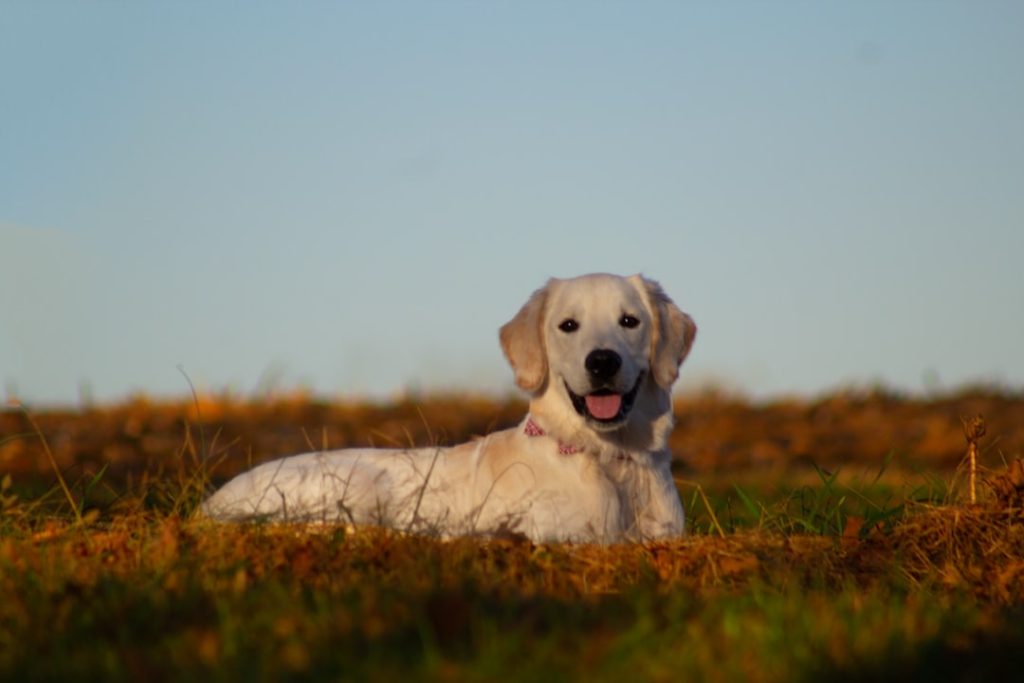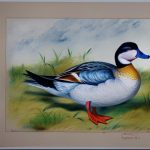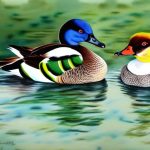Duck retriever breeds, also known as gun dogs or waterfowl retrievers, are a group of dog breeds that have been specifically bred and trained to retrieve ducks and other waterfowl for hunters. These breeds are highly skilled in water retrieval, making them invaluable companions for hunters who enjoy waterfowl hunting. Duck retriever breeds are known for their intelligence, loyalty, and strong work ethic, making them not only excellent hunting companions but also beloved family pets. These breeds have a long history of working alongside hunters, and their natural instincts and abilities make them well-suited for the task of retrieving ducks in various hunting environments.
Duck retriever breeds come in a variety of sizes, coat types, and temperaments, but they all share a common love for water and a strong desire to retrieve. Whether it’s the energetic and enthusiastic Labrador Retriever, the determined and focused Chesapeake Bay Retriever, or the agile and versatile Golden Retriever, each breed brings its own unique set of qualities to the table. Duck retriever breeds are known for their trainability and adaptability, making them highly sought after for both hunting and companionship. In this article, we will explore the characteristics of duck retriever breeds, popular breeds within this group, training methods for hunting, their suitability as family pets, and their health and care needs. Whether you’re an avid hunter looking for a reliable hunting companion or a family in search of a loyal and loving pet, understanding the world of duck retriever breeds can help you make an informed decision when choosing the right breed for your lifestyle and needs.
Table of Contents
Key Takeaways
- Duck retriever breeds are known for their ability to retrieve ducks and other waterfowl for hunters.
- They are typically strong swimmers with a water-resistant coat and a strong desire to work.
- Popular duck retriever breeds include the Labrador Retriever, Golden Retriever, Chesapeake Bay Retriever, and the Flat-Coated Retriever.
- Training duck retrievers for hunting requires patience, consistency, and positive reinforcement.
- Duck retriever breeds can make excellent family pets with proper training, socialization, and exercise.
Characteristics of Duck Retriever Breeds
Duck retriever breeds are known for their unique set of characteristics that make them well-suited for the task of retrieving ducks and other waterfowl. These breeds are highly intelligent, trainable, and possess a strong work ethic, making them excellent hunting companions. Their natural instincts for retrieving and their love for water make them invaluable assets for hunters who engage in waterfowl hunting. Duck retriever breeds are also known for their friendly and sociable nature, making them great companions for both hunters and families alike. Their gentle and affectionate demeanor, combined with their high energy levels, make them well-suited for an active lifestyle.
In addition to their physical and behavioral traits, duck retriever breeds are also known for their versatility in various hunting environments. Whether it’s retrieving ducks from marshes, ponds, or lakes, these breeds are adaptable and can navigate different terrains with ease. Their strong swimming abilities, webbed feet, and water-resistant coats make them well-equipped for water retrieval. Furthermore, duck retriever breeds are known for their strong sense of smell, which allows them to locate and retrieve downed ducks with precision. Their keen sense of sight and hearing also contribute to their effectiveness as hunting companions. Overall, duck retriever breeds possess a unique combination of physical attributes, temperament, and instincts that make them well-suited for the task of retrieving ducks and other waterfowl.
Popular Duck Retriever Breeds
There are several popular duck retriever breeds that are highly sought after for their hunting abilities and suitability as family pets. The Labrador Retriever is perhaps the most well-known and beloved duck retriever breed. Labradors are known for their friendly and outgoing nature, intelligence, and trainability. They are highly versatile and excel in various hunting environments, making them a top choice for waterfowl hunters. Another popular duck retriever breed is the Golden Retriever, known for its gentle temperament, loyalty, and agility. Golden Retrievers are highly adaptable and excel in both hunting and family settings.
The Chesapeake Bay Retriever is another popular duck retriever breed valued for its determination, strength, and resilience. Chesapeakes are known for their exceptional water retrieval abilities and their unwavering dedication to their work. The Boykin Spaniel is a smaller duck retriever breed that is highly energetic, intelligent, and eager to please. Boykins are known for their versatility in hunting and their affectionate nature as family pets. The Flat-Coated Retriever is another popular choice among waterfowl hunters due to its friendly disposition, enthusiasm for work, and elegant appearance. These are just a few examples of popular duck retriever breeds that have earned a reputation for their hunting prowess and their suitability as beloved family pets.
Training Duck Retrievers for Hunting
Training duck retrievers for hunting requires patience, consistency, and a deep understanding of the breed’s natural instincts and abilities. From an early age, it’s important to expose duck retriever puppies to various hunting environments, water retrieval tasks, and socialization with other dogs and people. Positive reinforcement training methods are highly effective with duck retrievers, as they respond well to praise, treats, and consistent training routines. Basic obedience training is essential for establishing a strong foundation for more advanced hunting training.
When training duck retrievers for hunting, it’s important to focus on developing their retrieving skills, obedience to commands such as “sit,” “stay,” “come,” and “heel,” as well as their ability to work in different terrains and weather conditions. Introducing ducks or decoys during training sessions can help duck retrievers become familiar with the scent and sight of waterfowl. It’s important to gradually increase the difficulty of training exercises to challenge the dog’s abilities while ensuring that they remain engaged and motivated. Building a strong bond with the dog through consistent training sessions and positive interactions is crucial for developing a successful hunting partnership.
Advanced hunting training may involve teaching duck retrievers to remain steady in the presence of distractions, to mark downed ducks from a distance, to retrieve multiple ducks in a single outing, and to deliver the retrieved ducks to hand without damaging them. Training sessions should be kept fun and engaging to maintain the dog’s enthusiasm for hunting tasks. It’s important to tailor training methods to suit the individual dog’s personality, energy levels, and learning style. With patience, dedication, and proper training techniques, duck retrievers can become reliable and skilled hunting companions.
Duck Retriever Breeds as Family Pets
While duck retriever breeds are primarily known for their hunting abilities, they also make wonderful family pets due to their friendly nature, loyalty, and affectionate demeanor. These breeds thrive on human companionship and are known for forming strong bonds with their families. Duck retrievers are highly adaptable to various living situations and can thrive in both rural and urban environments as long as they receive plenty of exercise and mental stimulation.
As family pets, duck retriever breeds are known for their gentle disposition around children and other pets. They are often described as being patient, tolerant, and eager to please, making them great companions for families with young children. Their high energy levels make them well-suited for active families who enjoy outdoor activities such as hiking, running, or playing fetch in the backyard. Duck retrievers also excel in obedience training and can be easily integrated into household routines with proper socialization and training.
It’s important to provide duck retriever breeds with regular exercise, mental stimulation, and social interaction to prevent boredom and destructive behaviors. Engaging in activities such as agility training, obedience trials, or interactive play sessions can help keep these breeds physically fit and mentally sharp. Additionally, providing them with puzzle toys, interactive feeders, or scent games can help satisfy their natural instincts and prevent boredom when indoors.
Overall, duck retriever breeds can make excellent family pets when provided with proper care, training, and socialization. Their loving nature, loyalty, and adaptability make them valuable additions to any household seeking a devoted canine companion.
Health and Care of Duck Retriever Breeds

Duck retriever breeds are generally healthy dogs with an average lifespan of 10-12 years. However, like all dog breeds, they may be prone to certain health issues that potential owners should be aware of. Common health concerns in duck retriever breeds may include hip dysplasia, elbow dysplasia, progressive retinal atrophy (PRA), ear infections due to frequent swimming activities, obesity if not provided with adequate exercise, and certain types of cancer.
Regular veterinary check-ups are essential for monitoring the overall health of duck retriever breeds and addressing any potential health issues early on. Maintaining a healthy diet tailored to the dog’s age, activity level, and specific health needs is crucial for preventing obesity and promoting overall well-being. Providing regular exercise through activities such as swimming, retrieving games, or long walks can help keep these breeds physically fit while also stimulating their minds.
Proper grooming is important for duck retriever breeds with water-resistant coats that require regular brushing to remove loose hair and prevent matting. Bathing should be done as needed to keep the coat clean without stripping it of its natural oils. Regular ear cleaning is essential to prevent ear infections caused by moisture buildup from frequent swimming activities.
In addition to physical care, mental stimulation is important for duck retriever breeds to prevent boredom and destructive behaviors. Providing them with interactive toys, puzzle games, obedience training sessions, or scent work activities can help keep their minds engaged while strengthening the bond between the dog and its owner.
Overall, providing duck retriever breeds with regular veterinary care, a balanced diet, proper exercise, grooming maintenance, and mental stimulation is essential for ensuring their overall health and well-being.
Choosing the Right Duck Retriever Breed
Choosing the right duck retriever breed requires careful consideration of your lifestyle, hunting preferences (if applicable), living situation, and the specific traits of each breed. Whether you’re seeking a skilled hunting companion or a loving family pet, understanding the characteristics of different duck retriever breeds can help you make an informed decision.
If you’re an avid hunter looking for a reliable hunting companion with strong retrieving abilities in various terrains, the Labrador Retriever or Chesapeake Bay Retriever may be suitable choices due to their proven track record in waterfowl hunting. If you’re seeking a versatile breed that excels in both hunting and family settings with a gentle temperament and high trainability, the Golden Retriever or Flat-Coated Retriever may be ideal options.
For families seeking a loyal and affectionate pet with high energy levels that thrives on human companionship and outdoor activities, the Labrador Retriever or Golden Retriever may be excellent choices due to their friendly nature around children and other pets.
Ultimately, choosing the right duck retriever breed involves considering your specific needs and preferences while also taking into account the unique traits of each breed. Whether you’re drawn to the intelligence of the Labrador Retriever or the resilience of the Chesapeake Bay Retriever, there’s a duck retriever breed out there that can fulfill your hunting or companionship needs with unwavering loyalty and devotion.
If you’re considering adding a duck retriever breed to your hunting team, it’s important to also consider the best way to house and care for your ducks. One option is to convert a shed into a chicken coop, which can also be suitable for ducks. This article on Poultry Wizard provides helpful tips and guidance on how to effectively convert a shed into a comfortable and functional living space for your ducks.
FAQs
What are duck retriever breeds?
Duck retriever breeds are a group of dog breeds that have been specifically bred and trained to retrieve ducks and other waterfowl for hunters. These breeds are known for their strong swimming abilities, intelligence, and strong retrieving instincts.
What are some common duck retriever breeds?
Some common duck retriever breeds include the Labrador Retriever, Chesapeake Bay Retriever, Golden Retriever, and the Flat-Coated Retriever. These breeds are known for their excellent retrieving abilities and are often used by hunters for duck hunting.
What characteristics make a good duck retriever breed?
Good duck retriever breeds are typically strong swimmers, have a water-resistant coat, are intelligent and trainable, and have a strong desire to retrieve. They should also have a good temperament and be able to work well in a variety of weather conditions.
Are duck retriever breeds good family pets?
Many duck retriever breeds make excellent family pets. They are often friendly, loyal, and good with children. However, they do require regular exercise and mental stimulation to keep them happy and healthy.
What kind of training do duck retriever breeds require?
Duck retriever breeds require consistent and positive training to develop their retrieving skills and obedience. They also benefit from early socialization to ensure they are well-behaved around other dogs and people. Additionally, they need regular exercise to keep them physically and mentally stimulated.
Meet Walter, the feathered-friend fanatic of Florida! Nestled in the sunshine state, Walter struts through life with his feathered companions, clucking his way to happiness. With a coop that’s fancier than a five-star hotel, he’s the Don Juan of the chicken world. When he’s not teaching his hens to do the cha-cha, you’ll find him in a heated debate with his prized rooster, Sir Clucks-a-Lot. Walter’s poultry passion is no yolk; he’s the sunny-side-up guy you never knew you needed in your flock of friends!







